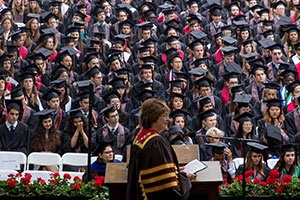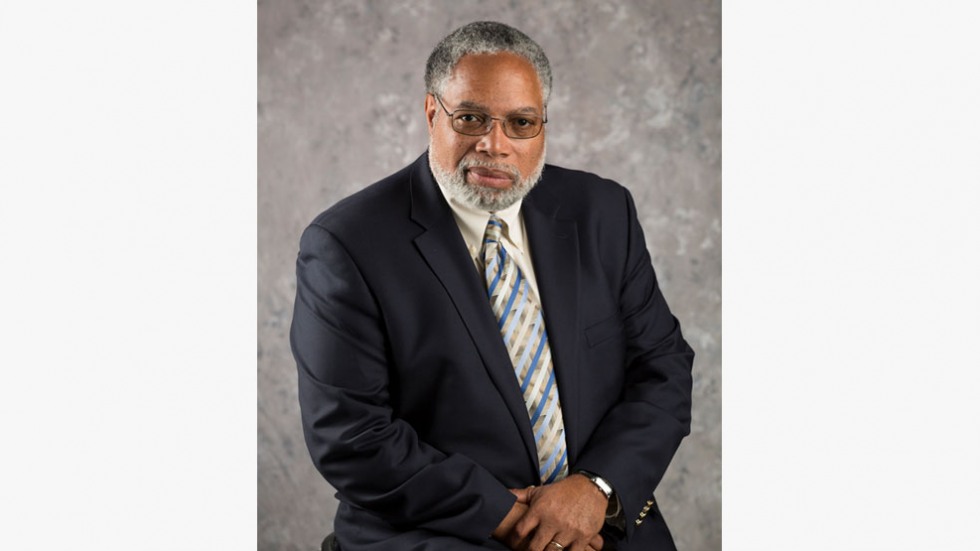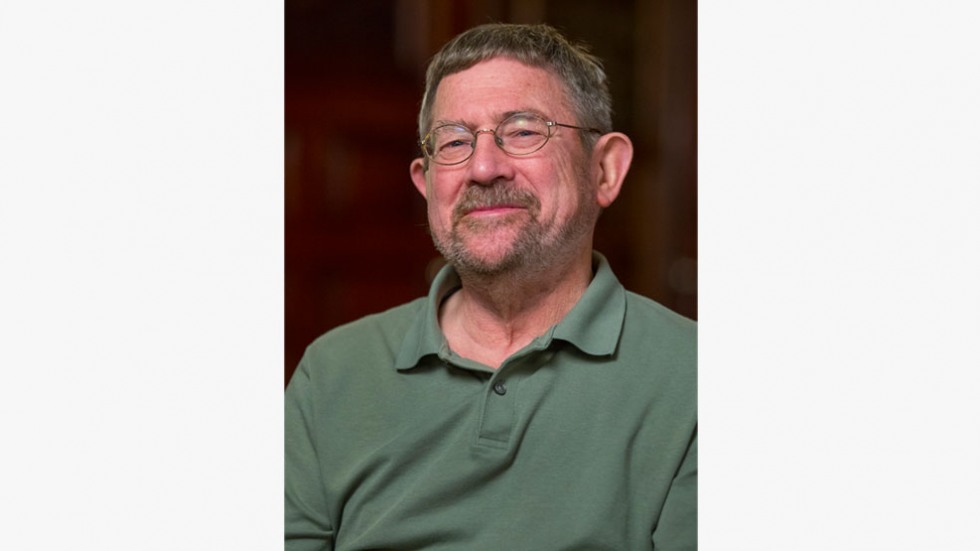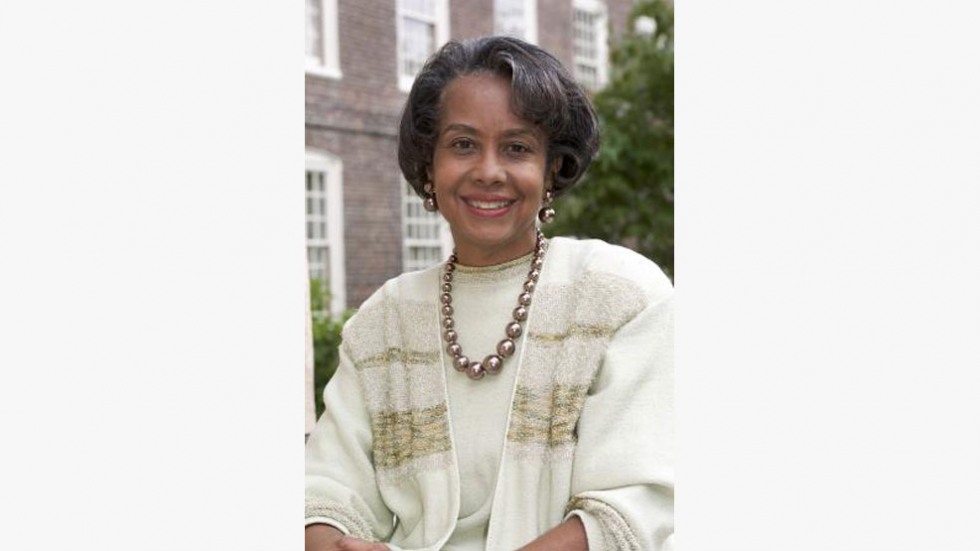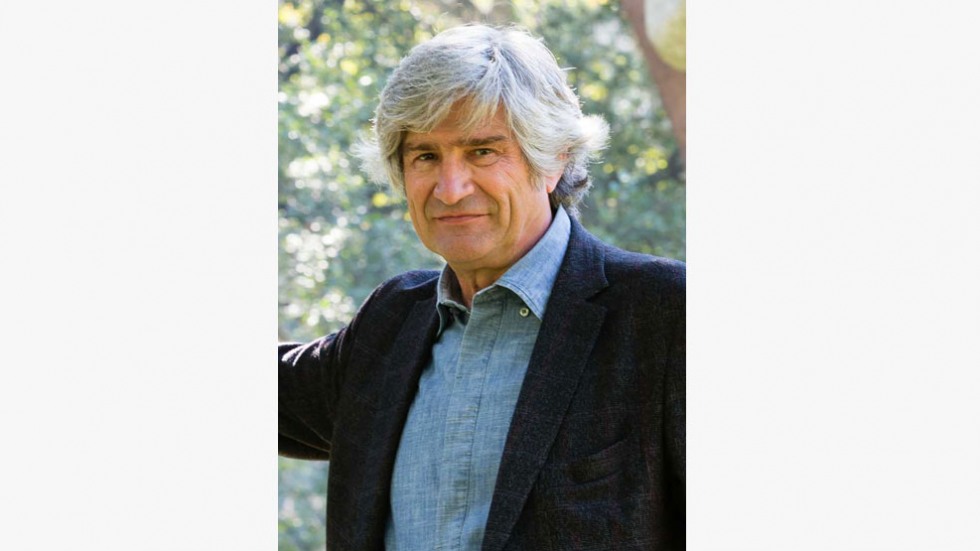PROVIDENCE, R.I. [Brown University] — At its 250th Commencement on Sunday, May 27, Brown University will confer honorary doctorates on seven candidates, including two esteemed members of the Brown community, who have achieved great distinction in a variety of fields. The candidates include:
- Lonnie G. Bunch III — Educator, historian and museum director
- J. Michael Kosterlitz — Physicist, educator and Nobel Prize winner
- Beverly E. Ledbetter — Chief legal officer and community leader
- Nancy Northup — Attorney and global reproductive rights leader
- Giuseppe Penone — Visual artist
- Sting — Singer-songwriter, author and activist
- Trudie Styler — Actress, activist and UNICEF U.K. ambassador
Honorary degrees are awarded by the Board of Fellows of the Brown Corporation and are conferred by the University president — in English and in Latin — during Commencement exercises on the College Green. Recipients receive prominent recognition at the ceremony but do not serve as the Commencement speaker; since its earliest days, Brown has reserved that honor for members of the graduating class.
Beverly E. Ledbetter, Brown’s chief legal officer since 1978, will deliver the Baccalaureate address to the Class of 2018 on Saturday afternoon in the Meeting House of the First Baptist Church in America. With that space reserved for members of the graduating class, the Baccalaureate address will be presented on video screens for family and friends on the College Green, in Sayles Hall and in the Salomon Center for Teaching.
Further details on all Commencement Forums will be posted in the coming weeks at www.brown.edu/about/commencement.
Lonnie G. Bunch III
Educator, historian and museum director
Doctor of Humane Letters
Historian, author, curator and educator Lonnie G. Bunch III is the founding director of the Smithsonian’s National Museum of African American History and Culture. In this position, he advances the museum’s mission to tell the American story through the lens of African American history and culture and provides strategic leadership in fundraising, collections, and academic and cultural partnerships. Bunch has spent nearly 40 years in the museum field, where he is regarded as one of the nation’s leading figures.
A prolific author, he has written on topics ranging from slavery and the black military experience to the American presidency and the impact of funding and politics on American museums. His books include “Call the Lost Dream Back: Essays on Race, History and Museums” (2010), “Slave Culture: A Documentary Collection of the Slave Narratives” (2014) and “Memories of the Enslaved: Voices from the Slave Narratives” (2015).
Bunch has held teaching positions at George Washington University and American University in Washington, D.C., and the University of Massachusetts, Dartmouth. He received undergraduate and graduate degrees from American University in African American and American history. In 2017, he was elected as a member of the American Academy of Arts and Sciences.
J. Michael Kosterlitz
Physicist, educator and Nobel Prize winner
Doctor of Science
In 1973, physicist J. Michael Kosterlitz and colleague David Thouless published a paper showing how a thin film of liquid helium could change phases, transitioning from an ordinary fluid to a superfluid that flows without friction. The phenomenon they described, which became known as the Kosterlitz-Thouless transition, triggered an avalanche of research on phase transitions and exotic states of matter. The work earned Kosterlitz a share of the 2016 Nobel Prize in Physics.
Born in Aberdeen, Scotland, where his family had settled after fleeing Nazi Germany, Kosterlitz earned his D.Phil. from Oxford in 1969 and joined the faculty at the University of Birmingham in 1974. He came to Brown in 1982 and is now the Harrison E. Farnsworth Professor of Physics.
Kosterlitz’s Nobel Prize made him the second Nobel Laureate on the Brown physics faculty, joining 1972 winner Leon Cooper. Kosterlitz was the recipient of the Maxwell Medal from the Institute of Physics in 1980 and was elected a fellow of the American Physical Society in 1990. In 2000, he was awarded the Lars Onsager prize and in 2017 was elected to the National Academy of Sciences.
Beverly E. Ledbetter
Chief legal officer and community leader
Doctor of Laws
Over a four-decade tenure as Brown University’s chief legal officer, Vice President and General Counsel Beverly E. Ledbetter has led a team of attorneys who provide legal counsel, representation and oversight on the wide range of legal matters that can affect a major research university.
A graduate of Howard University and the University of Colorado Law School, Ledbetter spent her early career at the University of Oklahoma working as legal counsel and teaching. In 1978, she ventured east to become Brown’s first general counsel, a position from which she retires this year. Whether advising on the complexities of evolving federal regulations or representing the University in a major legal action, she’s been a brilliant legal mind and a fierce advocate for the best interests of Brown.
Ledbetter has long dedicated herself to communities beyond campus, as well. A former Providence Housing Court judge, she helped to launch the Black Philanthropy Fund at the Rhode Island Foundation and has devoted time and expertise to organizations as diverse as the National Association of College and University Attorneys, the Thurgood Marshall Law Society, the Girl Scouts of Rhode Island and the Urban League.
Nancy Northup
Attorney and global reproductive rights leader
Doctor of Humane Letters
Under Nancy Northup’s leadership as its president and CEO, the Center for Reproductive Rights has become a global leader in using the power of law to advance reproductive rights as fundamental human rights. Through its work on five continents, the Center has secured legal victories worldwide on issues including access to life-saving obstetrics care, contraception and safe abortion services, as well as the prevention of forced sterilization and child marriage.
Northup has devoted her legal career to the public interest. She was the founding director of the Democracy Program at the Brennan Center for Justice at NYU School of Law, where she litigated voting rights, campaign finance reform and ballot access cases. From 1989 to 1996, she served as a prosecutor and deputy chief of appeals in the U.S. Attorney’s Office for the Southern District of New York.
Northup graduated magna cum laude from Brown University in 1981, where she was elected to the Phi Beta Kappa honor society. She earned her J.D. from Columbia Law School, where she was a Kent Scholar and managing editor of the Columbia Law Review.
Giuseppe Penone
Visual artist
Doctor of Fine Arts
Giuseppe Penone is one of the foremost figures of Arte Povera, a 1960s Italian avant-garde movement whose proponents employed common materials, such as stones or newspapers, to protest the commercialization of art.
Concentrating particularly on the aesthetic and intrinsic qualities of trees, he has created works ranging from richly textured wall hangings to intriguing and sensuous sculptures. His piece “Idee di Pietra” (Ideas of stone) — a 27-foot-tall tree that delicately balances a large boulder — was installed on Brown University’s College Green in 2016.
Penone lives and works in Turin, Italy. His work has been selected for multiple major awards, including the Praemium Imperiale by the Japan Art Association in 2014, and the McKim Medal by the American Academy in Rome in 2017. Penone’s work has been displayed in museums across the world, including New York’s Museum of Modern Art, Centre Georges Pompidou in Paris, Rijksmuseum Amsterdam and the National Gallery of Canada. He graduated from the Accademia di Belle Arti in Italy in 1970.
Sting
Singer-songwriter, author and activist
Doctor of Humane Letters
One of the world’s most distinctive musicians, Sting formed the pioneering British rock band The Police with Stewart Copeland and Andy Summers in 1977. The band released five studio albums, earned six Grammy Awards and two BRIT Awards and, in 2003, was inducted into the Rock & Roll Hall of Fame.
As a solo artist, Sting has earned an additional 10 Grammy Awards, two BRIT Awards, a Golden Globe, an Emmy, four Oscar nominations, a Tony nomination, Billboard magazine’s Century Award and the MusiCares 2004 Person of the Year award. He has sold close to 100 million albums from his combined work with The Police and as a solo artist. He has appeared in more than 15 films and on Broadway.
He is the author of a memoir, “Broken Music,” and “Lyrics,” a comprehensive collection of lyrics accompanied by personal commentary and photos.
With his wife, Trudie Styler, Sting founded the Rainforest Fund in 1989 to protect the world’s rainforests and the indigenous people who live within them. Together, they have held 18 benefit concerts, raising funds and awareness for the planet’s endangered resources.
Trudie Styler
Actress, activist and UNICEF U.K. ambassador
Doctor of Humane Letters
Trudie Styler is an actress, film producer, director, human rights activist, environmentalist and UNICEF U.K. ambassador.
In 1989, along with her husband, Sting, Styler founded the Rainforest Fund, an organization devoted to protecting rainforests and the indigenous people who live within them. Her efforts have aided in expanding the fund’s work in 18 countries across four continents. Since 1991, Styler has produced the charity’s regular benefit concert at Carnegie Hall, raising more than $37.5 million.
As an ambassador for UNICEF, Styler has been responsible for raising $5 million for its programs and remains committed to working to improve the lives of impoverished and exploited children all over the world.
Styler studied drama at the Bristol Old Vic Theatre School and later joined the Royal Shakespeare Company. She has numerous stage, film and television credits. For 20 years, Styler’s production company, Xingu Films, championed first-time writing and directing talent. In 2011, she co-founded Maven Pictures, with the mission to promote female talent and diversity in the film industry. Styler’s debut feature film as a director, “Freak Show,” was released in January 2018.
